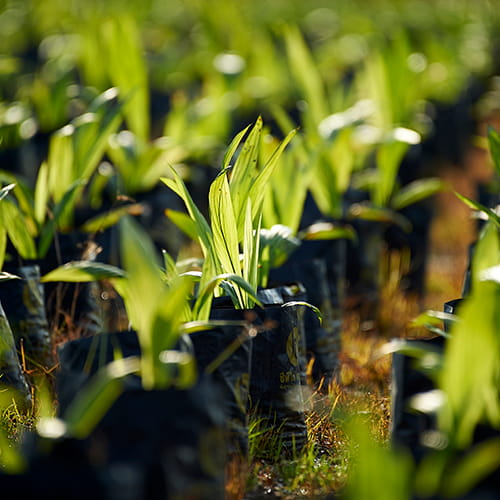RSPO Outcomes
RSPO outcomes are observable changes that are a direct result of RSPO Certification Systems and members’ actions. Impact data puts these outcomes in the context of a wider national, regional, global or sectoral level, showing trends in long-term effects for People, Planet and Prosperity. resulting from strategies and interventions derived from the RSPO Theory of Change (ToC). These effects may be direct or indirect, and intended or unintended.
These desired impacts are aligned with the UN Sustainable Development Goals to ensure relevancy for all actors in the palm oil supply chain. RSPO is in the process of redefining the framework for demonstrating and narrating our impact with a new Impact Indicator framework that is expected to be completed by 2023.

RSPO’s intended social, economic and environmental impacts
![]()
People
Sustainable Livelihoods and Poverty Reduction
Human Rights Protected, Respected and Remedied
The palm oil sector protects and improves rural livelihoods, equality, and social well-being. Human rights are respected. People participate in processes that affect them with shared access and benefits. Everyone engaged in palm oil production has equal opportunities to fulfill their potential in work and community, with dignity and equality, and in a healthy working and living environment.
![]()
Planet
Conserved, Protected and Enhanced Ecosystems that Provide for the Next Generation
Ecosystems and their goods and services are conserved, protected, enhanced, and made resilient through sustainable consumption, production and management of natural resources (sustainably managing forests, combating desertification, halting and reversing land degradation, halting biodiversity loss). Climate change is addressed through continuous GHG reductions, and air and water pollution are controlled.
![]()
Prosperity
Competitive, Resilient and Sustainable Sector
Sustainable palm oil reaches its full potential in terms of contributing to innovative economies and accelerated prosperity, and as a model for green and inclusive growth for emerging economies. A sustainable, competitive, and resilient palm oil sector ensures long-term viability of the entire supply chain and shared benefits for the private sector, as well as the livelihoods of the people and communities where palm oil is grown.





